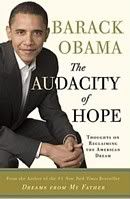Five Steps and Five Thousand E-mails Later...
Documents obtained tonight continue to directly contradict statements made by Gonzales and the White House. The first glaring example is the indication that there was an hour-long morning meeting in the Attorney General's conference room where Gonzales met with top aides to discuss which US attorneys to fire and how. On March 13, Gonzales told reporters he was not involved in the firings.
Are these people incapable of speaking a truth?
The first statement begging to be made is - What level of mental impairment is required to accept that there are 8 prosecutors who are so underperforming, they have to be replaced; so, an enormous "5 step" plan is devised, rationale has to be developed, Gonzales and top aides have to "decide" who has to go and what front they will put up for reasoning. Then when the brown stuff hits the revolving blades, the whole lot of them have to lie about it. Well sure...in this alternate universe we call the Bush administration, I guess we should all quietly dismiss those pesky facts and stop picking on our "Decider".
Covert Testimony
This Patriot Act president is so accustomed to doing everything under the radar, subverting the legal and/or constitutional process, creating rationalization or deniability, and avoiding accountability that he actually believes he presents a valid argument for covert "interviews" with absolutely no record, with attendees of his choosing and with questions of his choosing. This is unheard of.
Executive Privilege
The White House is claiming executive privilege as the justification for "not allowing" top aides to testify on this matter. A bit of research shows this as a perversion of the executive privilege. Think Progress notes that the leading case on executive privilege is United States v. Nixon, where the Supreme Court found that executive privilege is sharply limited:
The President’s need for complete candor and objectivity from advisers calls for great deference from the courts. However, when the privilege depends solely on the broad, undifferentiated claim of public interest in the confidentiality of such conversations, a confrontation with other values arises. Absent a claim of need to protect military, diplomatic, or sensitive national security secrets, we find it difficult to accept the argument that even the very important interest in confidentiality of Presidential communications is significantly diminished by production of such material for in camera inspection with all the protection that a district court will be obliged to provide.Another interesting dynamic in the "executive privilege" claim by this White House is the attempt to now extend that outside of internal White House communication. It is reported that the veritable tonnage of email correspondence coming to the surface show Karl Rove deeply embroiled in the plan from its inception. Many of the emails from Rove are from his RNC email address, sent from his blackberry and not even over a White House server. Executive privilege in this case is an enormous stretch to begin with, let alone claiming privilege over emails that were not even sent via White House internal communications.
Tony Snow adeptly argues both sides of this issue.
There is much blog talk on an Op-Ed piece Tony Snow wrote in 1998 showing his impressive ability to argue both sides of critical issues.
Tony Snow comments to National Review’s Byron York on 3-20-07:
“I don’t think it’s confrontational,” Snow said. “We feel pretty comfortable with the constitutional argument.”
Finally, I asked whether the White House believes this is a battle the president can win. "Yes," Snow said. "In terms of presidential prerogative, in terms of preserving confidential communications with your staff — yes."Tony Snow's Op-Ed piece in 1998 on Clinton's claim of executive privilege:
Evidently, Mr. Clinton wants to shield virtually any communications that take place within the White House compound on the theory that all such talk contributes in some way, shape or form to the continuing success and harmony of an administration. Taken to its logical extreme, that position would make it impossible for citizens to hold a chief executive accountable for anything. He would have a constitutional right to cover up.
Chances are that the courts will hurl such a claim out, but it will take time.
One gets the impression that Team Clinton values its survival more than most people want justice and thus will delay without qualm. But as the clock ticks, the public’s faith in Mr. Clinton will ebb away for a simple reason: Most of us want no part of a president who is cynical enough to use the majesty of his office to evade the one thing he is sworn to uphold — the rule of law.
Snow wasn't entirely pleased when questioned on this during his press conference.
QUESTION: But you wrote quite eloquently about this. You said, “Taken to its logical extreme, that position would make it impossible for citizens to hold a chief executive accountable. He would have a constitutional right to cover up.” So why were you wrong then and right now?
SNOW: Because you’re — this is not an entirely analogous situation. I just told you what we have in fact offered to make available to Members of Congress. What we’re doing is we are holding apart confidential communications between advisers and the President. And that is pretty standard practice in the White House.
QUESTION: But in the Clinton administration –
SNOW: I’m not so sure. I’ll let others do the legal arguing on that.
I found a fabulously articulated point made by E. J. Dionne Jr in his Op-Ed piece, Inserting Politics Into Justice,
To investigate Clinton -- even his Christmas card list -- was God's work. To investigate Bush is "to head down the partisan road of issuing subpoenas and demanding show trials," as the president put it this week.The Hot Discussions:
The Moderate Voice
The Raw Story
Captain's Quarters
Outside The Beltway
Washington Monthly - Political Animal
Technorati Tags: Bush, Gonzales, Congress, firings, US+attorneys, Karl+Rove, DOJ, executive+privilege, accountability, Tony+Snow, testimony, subpoenas, Patriot Act
.


























No comments:
Post a Comment